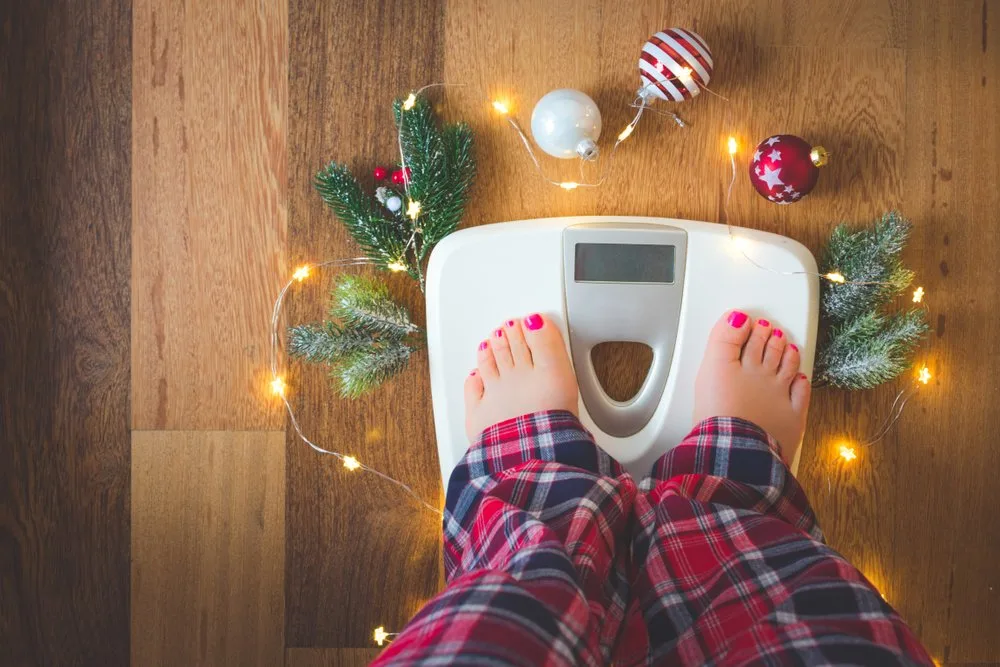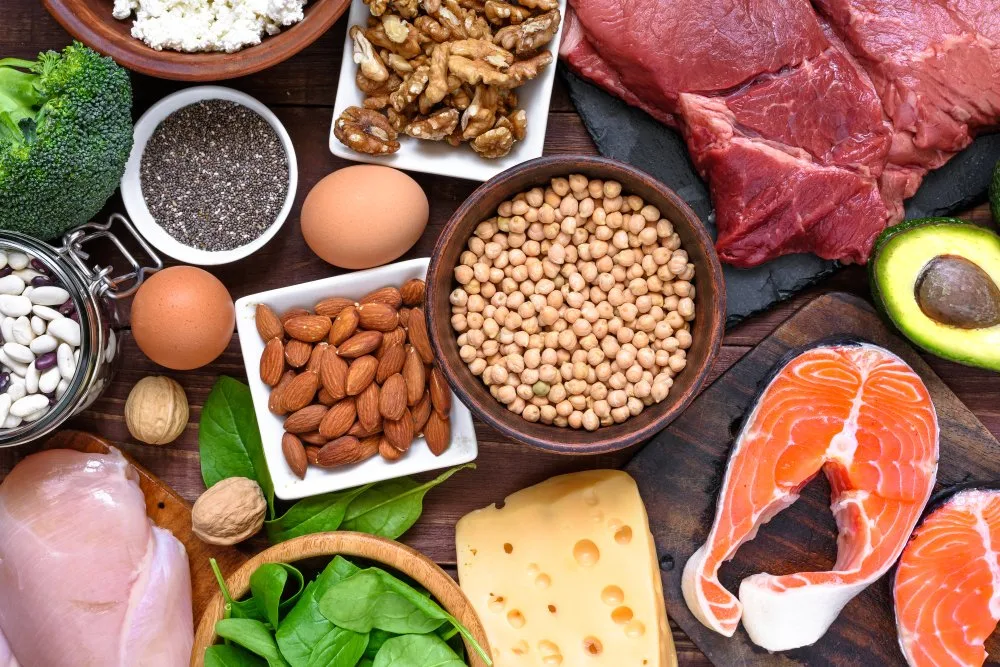It’s been a long year, and we’re each looking forward to unwinding during the holiday season. However, with research showing that most of the weight we gain happens during the holiday period, some of us may be worried about putting on holiday pounds (especially when you finally just lost that lockdown weight).
The good news is that you won’t have to wait until January 2021 to combat any potential weight gain. In fact, there are a few hacks that you can adopt that’ll help keep off the holiday weight, all while you enjoy a well deserved December break.
12 Ways To Prevent Holiday Weight Gain
1. Enjoy a good breakfast
You really shouldn’t be skipping breakfast, especially during the holiday season.
Not only is breakfast the most important meal of the day, but eating it can help to regulate blood sugar and keep you full. Both of these factors can reduce the risk of you munching on unhealthy and fattening foods throughout the day.
For a proper breakfast, make sure to include plenty of protein and fiber in your meal.
2. Keep moving
While it’s not exactly clear how many parks and recreational centers will be open during the holiday season, that’s no reason as to why you need to spend the better part of December in your bed.
Exercise has a number of benefits, the majority of which can benefit your weight so it’s important to stay active. In the case of not being able to spend time in a gym or a park, you can still opt for a walk, dancing with your family to beloved and cheesy Christmas songs or hop onto an online exercise class. If there’s one thing that 2020s shown us is that you don’t necessarily need the outside to stay fit.
3. Snack wisely
If there’s one thing that derails our weight management plans during the holiday season, it’s definitely all the sweet treats laid out. Be it cookies or other sugary goodies, these foods are always in abundance and somehow, readily available.
So, the best way to avoid these treats and to avoid unnecessary snacking is by opting for healthy snack foods. Fruits, vegetables dipped in hummus as well as nuts and seeds are great snack options as they’re filling and free of added sugars.
Additionally, snacking on healthy foods will also help to control those cravings that may force you to reach out for a sugary Christmas cookie.
4. Drink responsibly
Now while the holidays are a cause for celebration (especially after you’ve survived the year that was 2020), it’s important not to get too lost in your favorite bottle of wine.
Alcohol can affect your weight management journey in a few ways. Firstly, it can weaken your inhibitions, forcing you to gobble on those Christmas cookies that you swore you weren’t going to touch. Alcohol can also affect your sleep patterns, which can disrupt your appetite and increase your cravings.
So with that said, it’s best to stick to at least one glass a day.
5. Practice mindful eating
According to a study published in the American Journal of Clinical Nutrition, people who eat while distracted are more likely to overeat.
As such, many people encourage the practice of mindful eating whereby individuals eat mindfully and avoid distractions – these can include the TV, cellphones and work. By chewing slowly and focusing on the food, one will be better able to recognize the body signalling that its full, thus reducing the risk of overeating and unintentional weight gain.
6. Keep calm
It’s been a bit of a stressful year, and holidays are stressful enough so you may have to deal with more stress than usual this holiday season.
That said, it should be noted that one of the side effects of chronic stress levels is weight gain as stressful situations may trigger you to indulge in less than healthy food choices (1).
To combat your stress levels, try meditation apps, yoga, or deep breathing.
7. Get your beauty sleep
According to a study published in Nature Communications, poor sleep can actually increase your cravings for unhealthy, rich in sugar and fats. Moreover, a meta-analysis done by King’s College London on 11 existing sleep studies found that people who slept for a limited amount of hours ate an average of 385 more calories the next day when compared to people who got their 8 hours.
If you’re battling with getting enough quality sleep during the holiday period, try using these essential oils.

8. Stay Hydrated
According to a study published in Physiology & Behaviour, the majority of the time that people think they’re hungry, they’re actually thirsty. Staying hydrated will also help to prevent the negative side effects after a long night of drinking.
That said, it’s best to walk around with a glass bottle of water so that you can stay hydrated throughout the day.

9. Eat off of a smaller plate
People are guilty of eating more when they’re using a big plate, which then leads to overeating. Using a smaller plate not only prevents overeating but it’s also a good way to control portions.
10. Remember protein
Holiday foods are rich in sugar and carbs, and not necessarily protein. However, protein can promote fullness and increase your metabolism. This can help with weight management so it’s important to incorporate it into your holiday meal plan.
Protein-rich foods include salmon, nuts, eggs, as well as beans, and quinoa.
11. Don’t forget fiber
Fiber can help to prevent holiday weight gain by inducing satiety, helping to keep us fuller for longer.
Fiber-rich foods include vegetables, legumes, whole grains, nuts, and seeds.
12. Give in to cravings
Now you may think we’re a little crazy, given everything we’ve just said, but hear us out.
By acknowledging your festive cravings, instead of attempting to ignore them, you can actually help to curb your guilty cravings. By indulging in half of a Christmas cookie, you reduce the risk of you clearing out the entire tray in one sitting.
Just practice moderation when enjoying your cravings, and be sure to remember mindful eating.
Want to know more?
This year is definitely like no other, so how are we going to celebrate the festive season in 2020? Find out how to keep the Christmas spirit alive during a pandemic.








![women [longevity live]](https://longevitylive.com/wp-content/uploads/2020/01/photo-of-women-walking-down-the-street-1116984-100x100.jpg)










